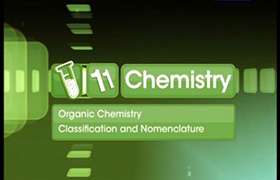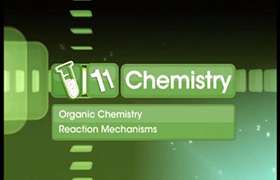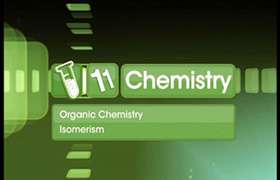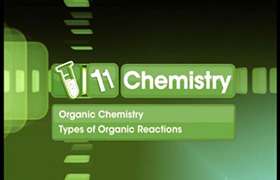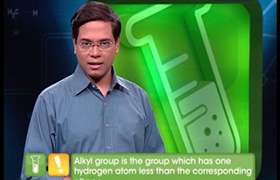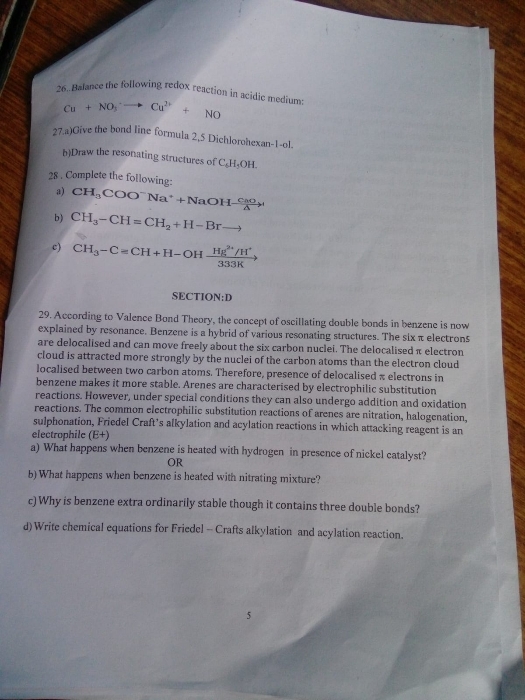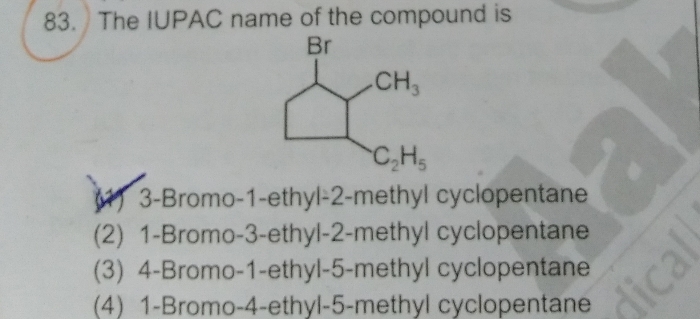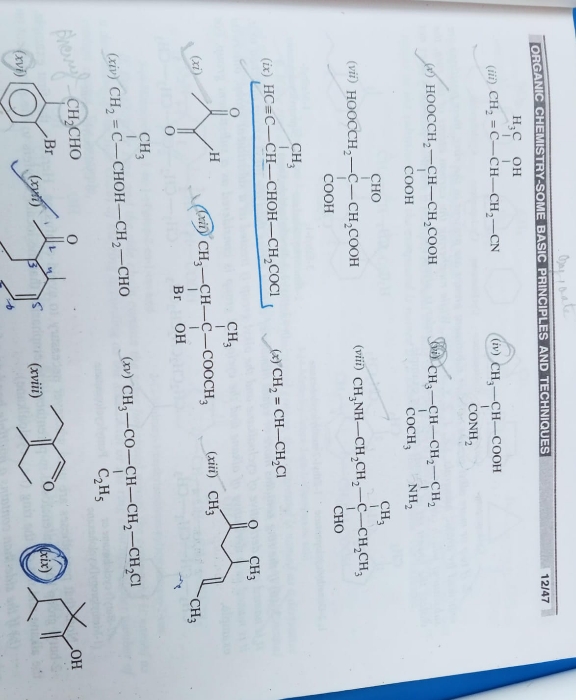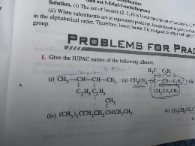CBSE Class 11-science Answered
These two simple examples will hopefully help you to understand this.
Ex 1. Mass % of an element = mass of that element in the compound × 100 / molar mass of the compound
Molar mass of water = 18.02 g
Mass % of hydrogen = (2×1.008 / 18.02) ×100 = 11.18
Mass % of oxygen = (16.00/ 18.02)×100 = 88.79
Ex 2. A compound contains 4.07 % hydrogen, 24.27 % carbon and 71.65 % chlorine. Its molar mass is 98.96 g. What are its empirical and molecular formulas ?
Solution
Step 1. Conversion of mass per cent to grams.
Since we are having mass per cent, it is convenient to use 100 g of the compound as the starting material. Thus, in the 100 g sample of the above compound, 4.07g hydrogen is present, 24.27g carbon is present and 71.65 g chlorine is present.
Step 2. Convert into number moles of each element
Divide the masses obtained above by respective atomic masses of various elements.
Moles of hydrogen = 4.07 g /1.008 g = 4.04
Moles of carbon = 24.27 g /12.01g = 2.021
Moles of chlorine = 71.65g /35.453 g = 2.021
Step 3. Divide the mole value obtained above by the smallest number Since 2.021 is smallest value, division by it gives a ratio of 2:1:1 for H:C:Cl .
In case the ratios are not whole numbers, then they may be converted into whole number by multiplying by the suitable coefficient.
Step 4. Write empirical formula by mentioning the numbers after writing the symbols of respective elements. CH2Cl is, thus, the empirical formula of the above compound. Step 5. Writing molecular formula
(a) Determine empirical formula mass Add the atomic masses of various atoms present in the empirical formula. For CH2Cl, empirical formula mass is 12.01 + 2 1.008 + 35.453 = 49.48 g
(b) Divide Molar mass by empirical formula mass Molar mass/Empirical formula mass = 98.96 g/ 49.48g = 2 = (n)
(c) Multiply empirical formula by n obtained above to get the molecular formula Empirical formula = CH2Cl, n = 2. Hence molecular formula is C2H4Cl2.

